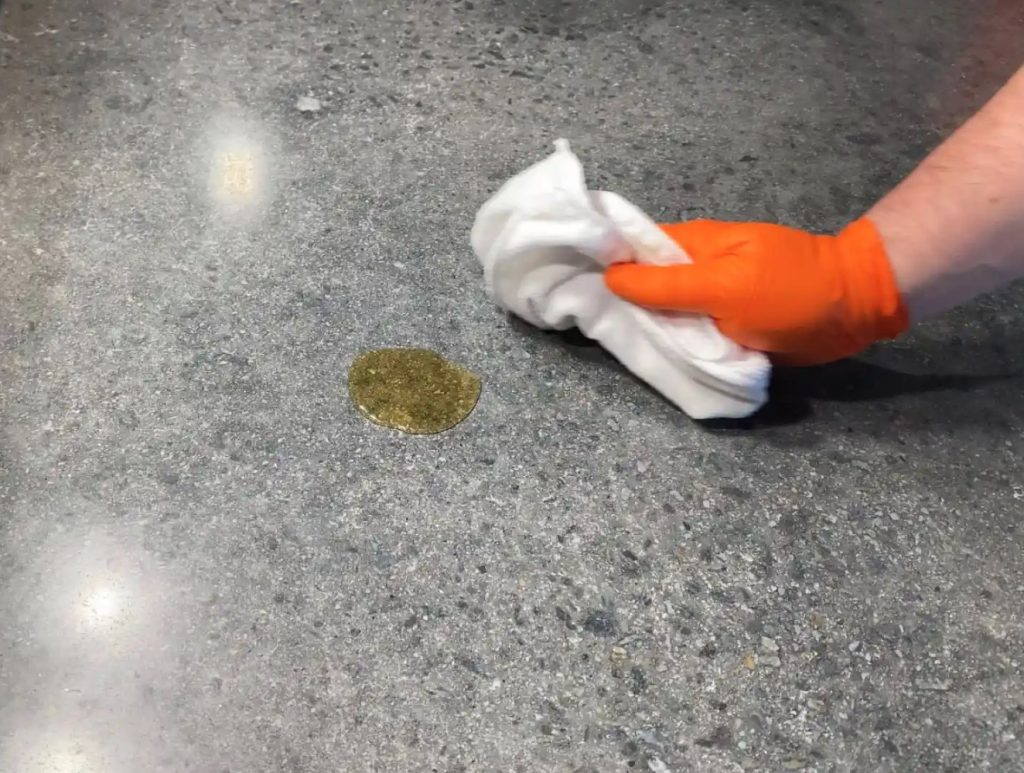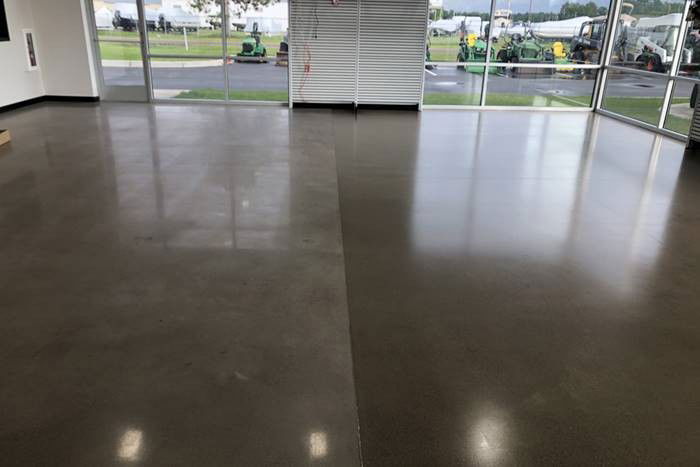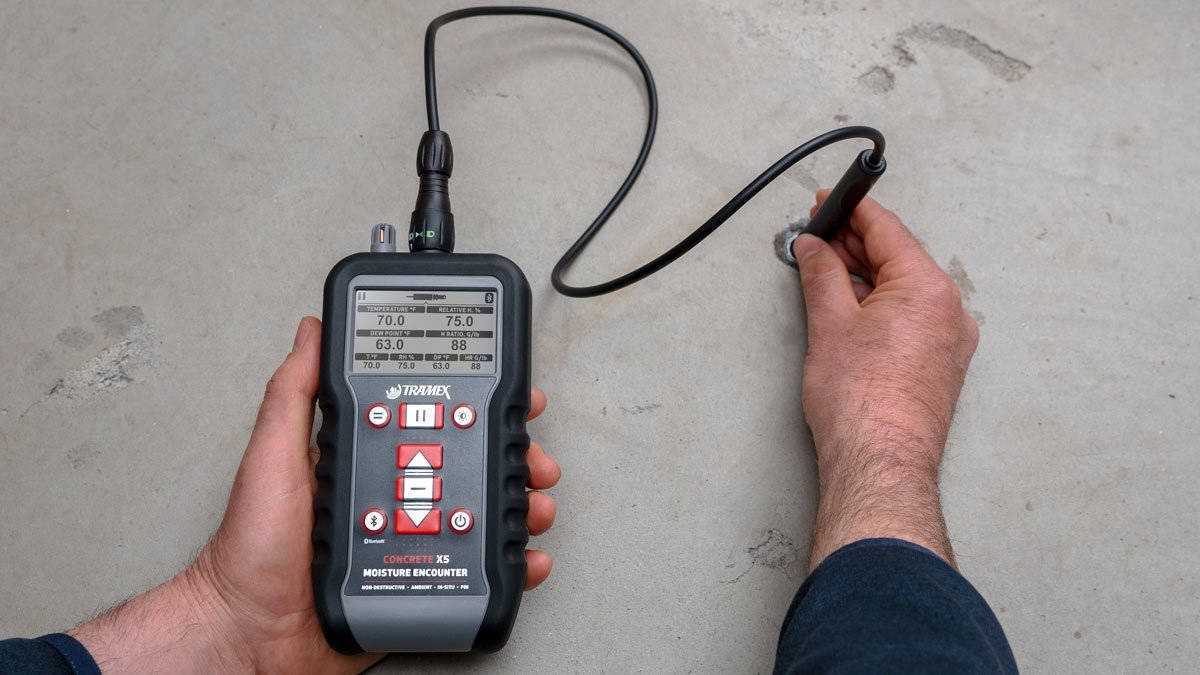Achieving and guaranteeing stain resistance for polished concrete involves a combination of proper surface preparation, the right choice of concrete, the application of sealers, and ongoing maintenance. While you cannot guarantee absolute stain resistance, you can significantly reduce the chances of staining:
How do you achieve polished concrete stain resistance?
-
Select High-Quality Concrete:
The first step is to start with a high-quality concrete mix that is less porous and less prone to staining. This typically means using a mix with lower water and higher cementitious material content.
-
Proper Curing:
Ensure that the concrete is adequately cured. Adequate curing helps reduce surface porosity, making the concrete less susceptible to stains. This involves keeping the concrete moist and covered for an appropriate curing period.
-
Diamond Grinding and Polishing:
Use diamond grinding and polishing techniques to create a smooth, dense surface. This not only enhances the appearance but also makes the concrete less porous.
-
Stain-Resistant Sealers:
Apply a high-quality, stain-resistant concrete sealer. There are two primary types of sealers:
-
Penetrating Sealers:
These sealers penetrate the concrete surface, filling pores and making it more resistant to stains. They don’t change the appearance of the concrete.
-
-
Film-Forming Sealers:
These sealers create a protective film on the surface of the concrete. They offer more stain resistance but may alter the appearance slightly. Choose a sealer designed explicitly for stain resistance, such as those containing silane, siloxane, or lithium.
-
Multiple Coats:
Apply multiple coats of the sealer as the manufacturer recommends. This will enhance the protective barrier and ensure better stain resistance.
-
Regular Maintenance:
To guarantee stain resistance over time, it’s essential to maintain the polished concrete surface properly:
-
Regular Cleaning:
Regularly sweep and mop the surface to remove dirt and debris. Use a pH-neutral cleaner designed for polished concrete.
-
Reapply Sealer:
Periodically reapply the concrete sealer per the manufacturer’s recommendations. This maintenance will help maintain the stain resistance of the surface.
-
Prompt Stain Removal:
If spills occur, clean them up promptly to prevent them from soaking into the concrete. Most stains can be removed with a mild detergent and water.
-
-
Regular Inspection:
Periodically inspect the polished concrete surface to identify any wear or damage to the sealer. Address any issues promptly to maintain stain resistance.
-
Professional Maintenance:
Consider periodic professional maintenance and resealing to ensure the long-term performance of the polished concrete.
While these steps can significantly enhance stain resistance, it’s essential to note that no surface is entirely impervious to stains. Timely cleaning and maintenance are crucial for maintaining polished concrete surfaces’ appearance and stain resistance. The level of stain resistance achieved will also depend on the quality of materials and the application process, so working with experienced professionals is advisable for the best results.

How do you improve stain resistance?
Improving the stain resistance of polished concrete by applying different types of sealers as one system can provide added protection and versatility. Here are some options to consider:
-
Hybrid Sealers:
Hybrid sealers combine the characteristics of both penetrating and film-forming sealers. They penetrate the concrete surface to provide deep protection while also forming a thin film on the surface for added stain resistance. These sealers offer a balance between durability and aesthetics.
-
Densifiers:
Concrete densifiers, such as lithium-based or potassium-silicate densifiers, can be applied before or after polishing to increase surface hardness and reduce porosity. They chemically react with the concrete to create a more stain-resistant surface. Densifiers are often used in conjunction with sealers for enhanced protection.
-
Stain-Blocking Sealers:
Some sealers are specifically designed to block stains caused by oil, grease, or chemicals. They create a barrier that prevents these substances from penetrating the concrete. These sealers are especially useful in areas where heavy staining is a concern, such as garage floors or industrial settings.
-
Color-Enhancing Sealers:
Color-enhancing sealers protect the concrete and deepen and enrich its natural color. These sealers can add an extra layer of protection against stains while enhancing the appearance of the polished surface.
-
UV-Resistant Sealers:
Consider UV-resistant sealers if the polished concrete surface will be exposed to direct sunlight. These sealers are designed to resist UV damage and prevent yellowing or discoloration of the concrete over time.
-
Multi-Coat Systems:
Combining multiple coats of different sealers can create a layered protection system. For example, you can start with a penetrating sealer for deep protection and top it with a film-forming sealer for added stain resistance and aesthetics.
The choice of sealers and their application should be based on the specific needs and conditions of the concrete surface. It’s best to consult with a professional concrete contractor or sealer manufacturer to determine the most appropriate combination of sealers for your project.
Remember that the effectiveness of any sealer system depends on proper surface preparation, application, and ongoing maintenance. As the manufacturer recommends, regular reapplication of sealers is essential to maintain stain resistance over time.





